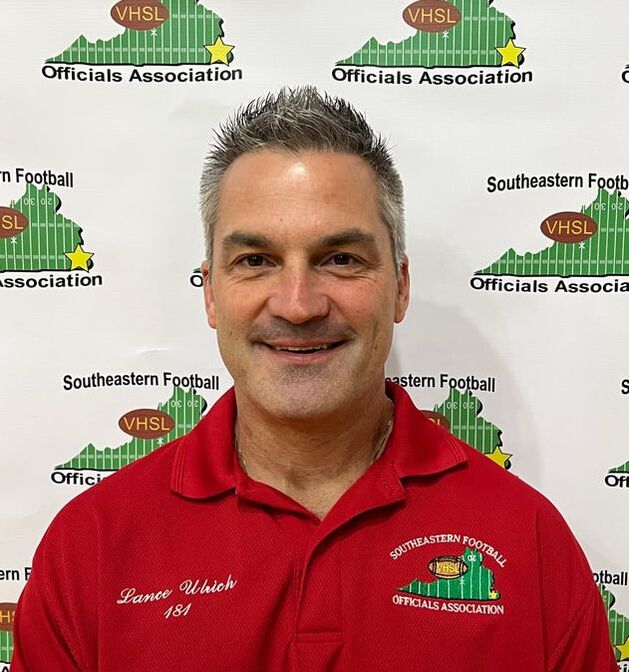 This month to kick off our 2017 Football season, we're pleased to present our guest blog from retired SEFOA Official, Rudy Rice. Some great words of wisdom. Thanks Rudy! Hi, my name is Rudy Rice and I was a member of the SEFOA for many years and I recently retired, but still have a passion for officiating. I asked Lance if I could share some experiences with everyone and he graciously has allowed me to jot down some items for you, so here goes: Years ago my wife saw an ad in the local newspaper advertising for individuals that might be interested in becoming High School football officials. I played a little football at the High School level, which means I played JV, but was at best an average player. I never had a lot of talent but enjoyed the game, so I thought being an official might be fun and the ad said you could make some extra money. So I called, fast forward 28 years and here I am a retired Football Official. What I would like to do in this short article is share 4 items that I picked up over the years that I believe will help the newer officials and hopefully some of the veterans will pick up something as well. Being Prepared – Study the rules of the game; study the mechanics of the game. You may not be able to quote word for word each rule but you should have a better understanding of the rules and mechanics than any coach, player or fan. I do not want to tell you how much time you should dedicate to study because each of us are different. Some officials will study the rules and/or mechanics everyday while others may feel like they can accomplish their study goals in an every other day study habit. The one thing I will tell you is that no matter how long you have been officiating, if you are not picking up the rules and/or mechanics manual you are short changing your crew, players, coaches and fans. When you pick up your rule and/or mechanics books in July and come November the books look exactly the same, you are not prepared. If this sounds harsh look at how much time the players and coaches prepare, we should be giving, at least, the same effort. No matter how long we have been officiating preparing needs to be on everyone’s to do list. Being prepared also means having the proper Uniform and making sure it is clean, wrinkle free, fits properly and has been well taken care of. The first impression you make goes a long ways. Being on Time – Here is one of the most important and easiest items that you will find in my list. No matter what level of officiating you are working there are time sensitive items that must be taken care of. Items like contacting the Crew Chief on games you are assigned, getting any paper work in required by your Assignor, getting to the game site at the time prescribed, or being at required meetings on time. All time sensitive items should be taken care of as quickly as possible and you will find out by doing this you will immediately earn some respect from your fellow officials, Crew Chief and Assignor. Positive Attitude – This includes how the players, coaches and fans perceive you as well as your fellow officials. Don’t have the “I know it all” attitude. Be willing to listen to advice and constructive criticism. Most fellow officials are trying to help. I was very fortunate in my officiating career because I had several mentors that I could always call, email, or text and ask a question if I needed to do so. We should all be willing to mentor others and hopefully, no matter how long we have been officiating, we still have that one or two individuals that we can still run things by which will help us keep that Positive Attitude. The items above all have one thing in common and that is they take ZERO TALENT. All of these items do not take any special talent what so ever to accomplish, so there is no excuse why all of us cannot do every one of these. When Zero Talent is required you are on equal grounds with everyone. Work on these Zero Talent required items and I promise you it will make you a better official. I will close this with a short story someone once shared with me: A friend was breaking into football officiating. He had gone to several meetings, for the new officials, over the last few months and was now attending his first clinic. One of the requirements at the clinic was that everyone, veterans and the new officials, had to run a half mile. One of the veteran officials, who also was one of the trainers for the new officials, took the 15 new officials to the side prior to the half mile run and had a talk with them. He wanted to let them know what was going on and also what was expected of them, because this would be the first time the new officials would be introduced and meet the veteran officials. At the end of his talk he told them “we are about to do the half mile run and I want all of you to remember these 3 things about the half mile run, one, do not finish last and two, do not finish first.” With this being said he starting walking over to the track where the run would take place and finally one of the new officials said “wait you said there were 3 things but only told us 2.” The veteran official/trainer calmly looked over at the 15 new officials and said “oh yeah, the third thing is DO NOT FINISH LAST”. I share this with you because at the beginning of this “blog” I told you there were 4 items that I wanted to share with you but I only talked about 3. The fourth item is BEING PREPARED. Yes right back to the first item because I feel this is the most important. Preparation does not take any special talent and will make you a better official. The better prepared you are the faster you will get to the level of officiating you are trying to achieve. I am sure you can think of many more items that take Zero Talent which will be beneficial to you and others, so work on these items and share them with your fellow officials and hopefully it will make us all better officials. Thanks and I wish everyone the best, Rudy
1 Comment
|
Blog AuthorLance Ulrich has been a football official since 2002, and a member of SEFOA since 2009. Archives
March 2023
Categories |

 RSS Feed
RSS Feed